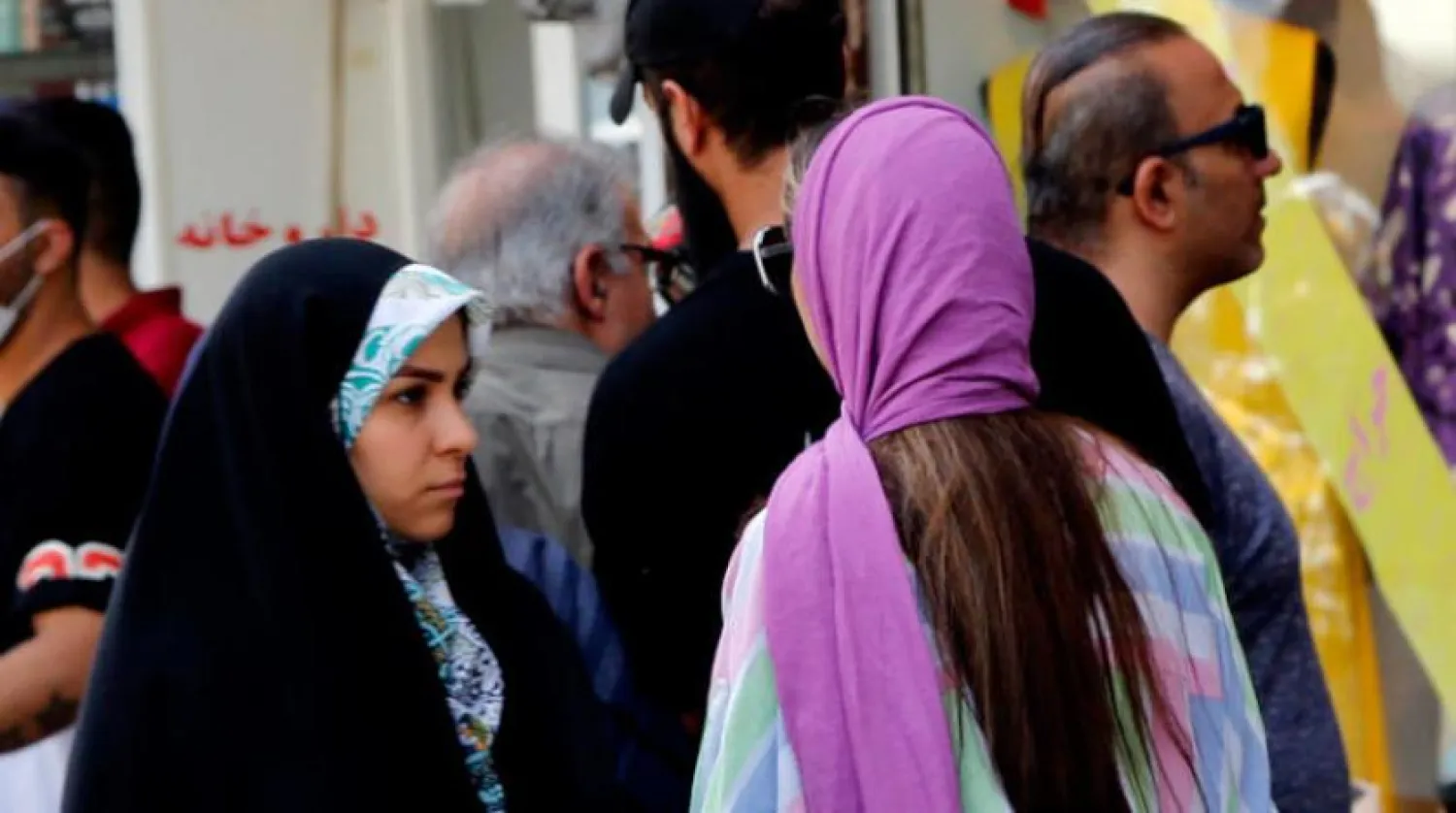Iran’s celebration of the “National Day of Hijab and Chastity” on Tuesday, as part of a campaign launched by the authorities to restore strict rules on women, has sparked a widespread popular debate.
Iranian rights activists have urged women to publicly remove their veils on the day, risking arrest for defying the Islamic dress code as the country’s hardline rulers crack down on “immoral behavior,” Reuters reported.
After the 1979 revolution, Iranian authorities forced women to cover their hair and wear long, loose-fitting clothes to disguise their figures. Violators face public rebuke, fines or arrest.
But decades after the revolution, clerical rulers still struggle to enforce the law, with many women of all ages and backgrounds wearing tight-fitting, thigh-length coats and brightly colored scarves pushed back to expose plenty of hair.
Critics and activists see the establishment’s stepped-up efforts to enforce hijab compliance as part of a wider clamp-down on dissent amid deepening resentment over economic hardship at home and growing Western pressure on Iran over its disputed nuclear program.
“The National Day of Hijab and Chastity is only an excuse to target women and launch a new wave of repression against Iranian people and in particular women,” dozens of prominent women’s rights activists said in a joint statement on Monday.
In a display of civil disobedience, the hashtag #No2Hijab was widely promoted for days on social media by Iranians outside and inside the country.
Videos of women removing their hijab as they walked in the streets or resisting the morality police flooded social media.
“I should have the right to decide what I want to wear and not be imprisoned because of my choice. #No2Hijab,” tweeted a female user.
Some women who voluntarily wear the veil and men have also joined the campaign.
“I don’t have a veil to remove. But I will come to the street to support and defend the women and girls of my land. #No2Hijab,” tweeted @mashmolak.
The New York-based International Campaign for Human Rights in Iran (ICHRI) said on Monday there were “serious concerns over more potential violence and detentions on July 12.”
Several people were arrested on Monday, Reuters reported, quoting Iran’s semi-official Fars news agency.
The #No2Hijab campaign coincided with months of protests by teachers, retirees, workers and government employees over unpaid wages, low pensions and sky-rocketing food prices that have hurt the establishment. Protesters have called for political change.
“This is like pouring fuel on fire. People are already angry because of high inflation and rising prices. They are very frustrated,” said a former Iranian government official. “Coercion has never worked.”
Hijab protests have hit the clerical establishment in the past years. In 2014, rights activist Masih Alinejad started a Facebook campaign “My Stealthy Freedom,” where she shared pictures of unveiled Iranian women sent to her.
It was followed by a campaign in 2017 for women to wear white headscarves on Wednesdays and the hijab protests in 2018 when women took to the streets holding their veils aloft.
Dozens of women have been jailed in Iran for their activism against forced veiling, according to rights groups.
“The establishment fears a revolution by women that has already started today,” Alinejad told Reuters.
On Friday, representatives of Iranian Supreme Leader, Ali Khamenei, attacked the leniency in imposing veil restrictions.
Hardliner Ahmad Alamolhoda, the Friday prayer Imam of Mashhad and President Ebrahim Raisi’s father-in-law, praised the city’s attorney general for issuing new orders on tightening the veil restrictions.
The official had ordered a ban on women entering the subway if they do not strictly abide by hijab rules.









